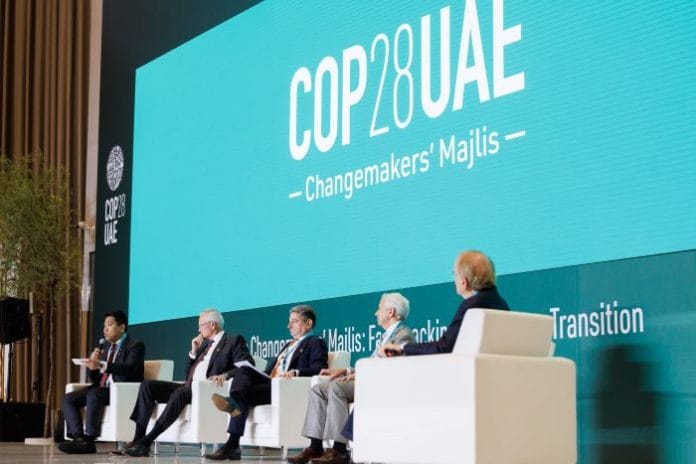The United States is among at least 60 countries backing a pledge on Tuesday to cut cooling-related emissions by 2050, U.S. State Department officials said at the U.N. climate summit in Dubai.
The Global Cooling Pledge would mark the world’s first collective focus on energy emissions from the cooling sector. It calls for countries to reduce by 2050 their cooling-related emissions by at least 68% compared to 2022 levels.
It’s a tough task, given the cooling industry is only expected to grow as temperatures continue to climb.
Emissions from both the refrigerants and the energy used in cooling account for about 7% of climate-warming emissions, and energy demand for cooling could triple by 2050.
Reuters is first to report the U.S. support, which suggests there could be a process to construct more regulations or incentives for the industry in the United States, and ramp up pressure on other countries to join.
The officials declined to be named as the information remained confidential.
One official said the United States was keen to work on ways to boost the efficiency of cooling technologies and phase down the use of hydrofluorocarbons, or HFCs, a potent greenhouse gas that is released by air conditioners and refrigerators.
In October, the U.S. Environmental Protection Agency set a new rule restricting the use of HFCs beginning from 2025 to 2028, and proposed setting requirements for managing or reusing HFCs and repairing leaky equipment.
Kenya was the first to sign on to the Global Cooling Pledge, with at least 59 more countries joining as of Monday afternoon, said Brian Dean of Sustainable Energy for All, a nonprofit agency that is part of a U.N. Environment Programme coalition that developed the pledge.
Organizers hope to see at least 80 countries supporting the cooling pledge, given the dangers people face from heatwaves.
By contrast, at least 118 countries supported another COP28 pledge to triple renewable energy and double energy efficiency rates by 2030 – commitments that are considered less detailed and less expensive to implement than the cooling goal.
India voiced concerns about the pledge to organizers, and if not resolved, it would not join, a government official said Monday, without giving any details.
A report from the Lancet medical journal last month estimated that heat stress deaths could quadruple by mid-century.
UNEP estimates that global efforts to tackle cooling emissions could avoid the release of up to 78 billion metric tonnes of carbon dioxide equivalent.









